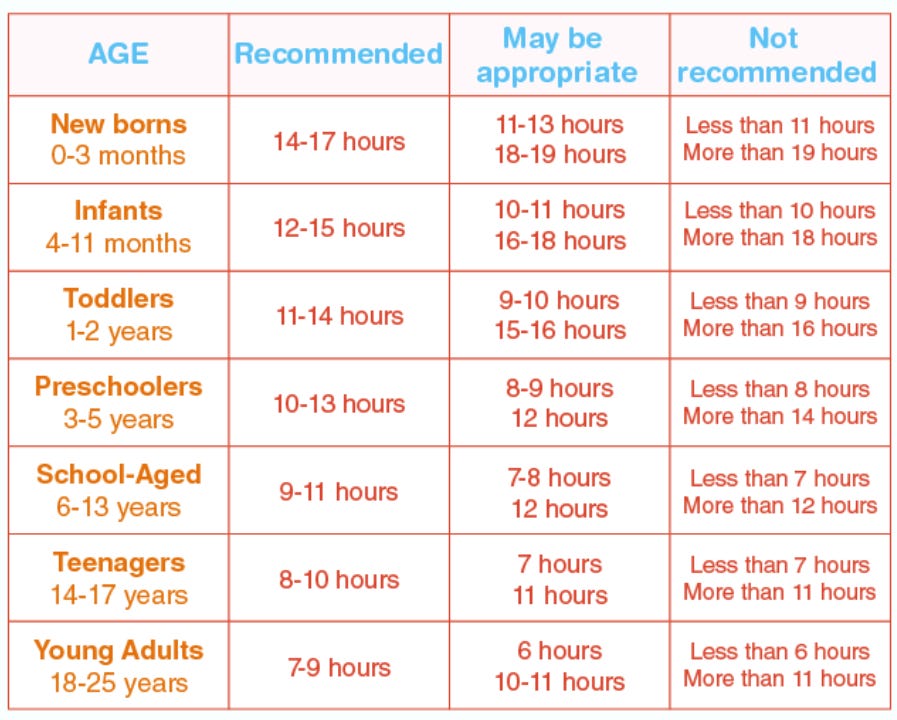“When sleep is abundant, minds flourish. When it is deficient, they don't.”
- Matthew Walker

If you’re like me and sleep doesn’t come easily, it can be a…nightmare. Falling asleep, staying asleep, any of it. But it wasn’t until after listening to Matthew Walker, the sleep guru, that it dawned on me. Not only was it very unhealthy, but it was mostly my fault. Yes, some people can fall asleep during take-off and others are up until 2 am wondering what era they would time travel to. But overall, our habits during the day have significant impacts on our quality of sleep and therefore, our long-term health.
ADHD and sleep
Characteristics of ADHD
Easily distracted; difficulties staying on task; lack of organisation; forgetfulness; poor working memory; irritability; impulsivity.
Characteristics of sleep deprivation
^ See above ^
The idea of a 6 am wake-up for school always seemed mental, but plenty of children are capable of bouncing to school at dawn and cracking on with an 8-hour day. However, for the minority who can’t, it’s, unfortunately, a bit of a chicken-and-egg problem. Children with severely disrupted sleep have a much higher likelihood of developing symptoms associated with ADHD, but having ADHD (or characteristics of it) makes you much more susceptible to sleep disturbances in the first place! The fact a good night’s sleep benefits us is not groundbreaking, but the importance of a quality night’s sleep is, and it is, therefore, essential that we develop effective bedtime routines for children.
Effects of sleep deprivation on Children
Focus, alertness, and the ability to concentrate for long periods
Neuroplasticity – the brain's ability to create and strengthen synapses. i.e. remembering and consolidating learning information
Working memory and mental performance deficits
Emotional regulation – can be an increase in irritability and frustration levels
Processing – it can take longer to process information/instructions and therefore respond quickly
Diet and immune system – a higher likelihood of obesity and illnesses
Quality AND quantity
Most families have regular bedtimes, especially on a school night. However, the routine leading up to bedtime has a larger impact on the quality of sleep we get and how well-rested and productive we are the next day. Below are some research-based strategies that help to get to and stay asleep.
Sleep protocols to increase quality sleep:
View sunlight by going outside within 30–60 minutes of waking
Triggers healthy cortisol release to promote wakefulness; starts a timer for melatonin.
Again in the late afternoon around sunset
Triggers melatonin release and sets the signal that it is time to go to sleep.
Avoid bright light, especially blue light from device screens, a couple of hours before bed
Blue light tricks your brain into thinking it's still daytime.
Stimulating games and videos increase heart rate and can trigger dopamine and adrenaline.
Consistent wake-up and bedtimes
Routines help your brain know when it is supposed to start getting ready for sleep.
If you struggle with falling asleep or staying asleep, avoid staying in bed for long periods awake
Get up and engage in a quiet activity until you feel sleepy again.
Cool body temperature
A drop in core body temperature (1-3 degrees) is required for you to enter a state of sleep; the opposite is also true – you will wake up if your body temperature rises 1–3 degrees.
This, counter-intuitively, is done by having a warm bath or shower.
Regular exercise
60 minutes of exercise is recommended per day (minimum) although, not close to bedtime.
Exercise reduces stress and anxiety; produces relaxation endorphins; regulates circadian rhythms and reduces daytime feelings of sleepiness.
Healthy diet
Limit refined sugar in general, especially in the evenings.
Excess calories and obesity can increase the risk of sleep disorders such as sleep apnoea.
Writing
Can be relaxing and take your mind off things.
Noting any worries on paper can reduce the likelihood of lying awake and thinking about them.
Bonus round for adults
Avoid caffeine up to 10 hours before bed.
Avoid alcohol before bed - even one glass of wine (sorry)
It is a sedative, not a sleep aid.
It blocks REM sleep, so you may fall asleep quicker, but the quality will suffer.
In summary, the importance of quality sleep for child development cannot be understated. It is vital that we continue to educate ourselves and our children on this topic as research already shows long-term consequences such as ‘impaired brain development, neuronal damage and permanent loss of developmental potential’. Furthermore, the effect on focus, memory formation, mood regulation and overall health is becoming apparent, especially with the increase in exposure to blue light (TV; devices; laptops) before bed.




I just read Matthew Walker's book "Why We Sleep" and it was informational, interesting, and terrifying. I have been trying to implement things to improve sleep, thanks to the book.
I am appreciating the well written, succinct summaries of these issues. It is sometimes nice to get an easily digestible overview, instead of having to read lengthy books or studies.
Thanks!
Absolutely! Quality sleep is so critical, especially for children—no arguments there. The benefits are real, from brain development to mood and memory. But let’s be honest: if naps were cardio, I’d be an Olympian by now! Teaching kids the importance of sleep (minus the blue light) could be one of the best gifts we give them. If they learn early, maybe they’ll embrace the “installing updates” nap strategy we adults depend on so much.